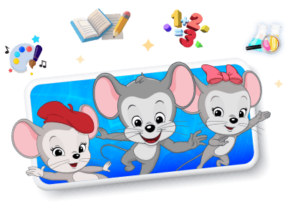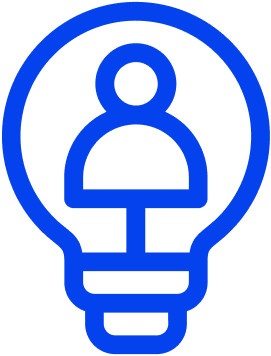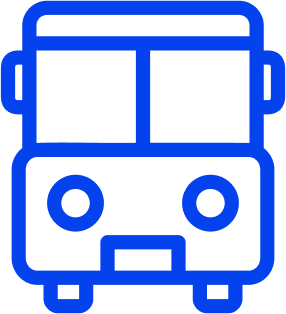South Carolina Homeschooling Laws and Resources
If you are considering homeschooling in South Carolina, our guide to South Carolina’s homeschool laws is an excellent starting point. It includes crucial state guidelines and requirements and helpful resources to add to the success of your homeschool.
Homeschooling in South Carolina Overview
Notice of Intent Required: Yes
3 Options for Homeschooling: Homeschool Statute, Home Schools (SCAIHS), Accountability Associations
Subject or Curriculum Requirements: Yes
Attendance Age Requirements: 5-17
Record-Keeping Requirements: Yes
Assessments or Evaluations Required: Yes, depending on which option you choose
Proof of Immunization Required: No
Table of Contents
South Carolina Homeschooling Laws and Regulations
How to Start Homeschooling
Qualifications to Homeschool
Options for Homeschooling
Legal Requirements
Subject Requirements
Attendance & Age Requirements
Evaluations and Assessments
Required Immunizations
Resources for Homeschooling Families in South Carolina
Public School Access
Homeschool Groups and Co-ops
Organizations and Associations
Sports Opportunities
Homeschool Field Trips
Special Education Homeschoolers
How Our Curriculum Can Help
Homeschool FAQ


How to Start Homeschooling in South Carolina
South Carolina is a welcoming state for homeschooling families. The state and school districts offer a supportive environment to facilitate your homeschool vision. Homeschooling is legal in South Carolina, and home educators can customize their child’s education to their specific needs and interests.
As a homeschooler in South Carolina, the first step you need to take is choosing one of the three homeschooling options laid out in the state’s homeschool statutes. Each option has benefits and specific requirements to stay in compliance.

Qualifications to Homeschool in South Carolina
Home educators in South Carolina are required to have a GED or high school diploma. There is no further certification or additional licensure required to teach your children.

Options for Homeschooling in South Carolina
Homeschool laws in South Carolina allow parents and guardians to choose from three options when setting up their homeschool. There are different requirements depending on which option you choose. Two of the three options require home educators to keep records and create a portfolio of work.
Option 1–Homeschooling Under the Homeschool Statute
This is a more traditional option and is probably what you picture when you think of homeschooling. It’s very flexible but does have a few requirements.
- Receive approval from the school district board of trustees.
- Each district will have a distinct application process. Contact your local district to ask how they accept and approve applications.
- In your application, you must include assurance that you will complete the following steps (steps 2-6).
- Teach the required subjects for the required time.
- 180 days of instruction
- Required subjects include: reading, writing, math, science, and social studies; In grades 7–12, composition and literature.
- Maintain records as evidence of regular instruction.
- A planner, schedule, or written record indicating subjects taught
- A portfolio showcasing samples of your child’s work
- Accurate records of your child’s academic progress assessments
- Submit a progress report twice each year.
- Plan to include attendance records and assessments of your child’s proficiency in each of the state-mandated subjects.
- Gain access to the local library for your child.
- Participate in annual standardized testing through the school district.
Option 2–Homeschooling with the South Carolina Association of Independent Home Schools (SCAIHS)
Homeschoolers in South Carolina can enroll with SCAIHS as an overseeing organization for their homeschool.
Follow these steps if you choose this option for your homeschool.
- Complete the SCAIHS application.
- Consult with a counselor on curriculum options.
- Home educators supply their own curriculum and materials, but SCAIHS can help narrow down the vast options and resources.
- Utilize the counselor to help craft a graduation schedule for your homeschooled high schooler.
- Maintain records in the SCAIHS database.
- The organization’s portal will generate report cards, transcripts, progress reports, and attendance records.
Option 3–Accountability Associations
You can also enroll in a certified homeschool association that provides accountability and support. Under this option, you must meet the following requirements:
- The parent or guardian must have at least a high school diploma or GED.
- You must teach 180 days.
- You must teach these required subjects: reading/literature, writing/composition, mathematics, science, and social studies.
- Maintain a plan book, diary, or other record of instruction and activities for each child.
- Keep a portfolio of samples of each child’s work.
- Document progress reports twice each year.
- Students do not need to participate in standardized testing under this option.
The state education department has compiled a thorough list of approved accountability associations.

Legal Requirements to Homeschool in South Carolina
Regardless of which option you choose when setting up your homeschool, you’ll need to meet certain requirements to comply with state laws.
TIP: South Carolina requires homeschoolers to keep great records, document attendance, and teach certain subjects.

South Carolina Homeschool Subject Requirements
South Carolina has mandated school subjects. All public and homeschool students must receive an education in the required subject matter.
Home educators can approach these subjects in ways that suit their child best. As a homeschooler, plan to instruct your child in these subjects:
- Reading
- Writing
- Math
- Science
- Social Studies
- In grades 7-12, you must also include composition and literature.

South Carolina Homeschool Attendance and Age Requirements
Your child must be enrolled in public school or comply with the homeschool laws beginning with the school year when they are 5 years old before September 1st.
TIP: A child must continue attending public school or homeschool until they graduate from high school or turn 17.
When homeschooling in South Carolina, you must keep track of attendance and ensure that your child receives 180 days of instruction each school year.

South Carolina Homeschool Assessments and Evaluations
Homeschoolers who are operating under Option 1 are required to participate in annual state testing. A school district employee must give the tests.
If your child doesn’t achieve a score that meets grade advancement standards, the school district may require you to enroll your child in public school or hire tutoring support. If there is a disability suspected, the school district can help coordinate special services.

Required Immunizations for Homeschoolers in South Carolina
In South Carolina, homeschoolers are not mandated to be vaccinated. However, it’s advised that you keep records of any immunizations your child has received in your homeschool documents.

Public School Access for Homeschoolers
South Carolina is supportive of homeschoolers and allows homeschooled students to participate in classes, activities, and sports through the local public school. You can read more about the rules and responsibilities through the South Carolina Department of Education website.
TIP: To participate in classes or sports in your local school, your child must meet the same eligibility requirements as public school students.
Additionally, homeschoolers must submit a written notice to the school district expressing their intent to represent the public school through a school sports team. This notice must be submitted before the season begins for the sport.

Resources for Homeschool Families in South Carolina
These resources provide an excellent opportunity for South Carolina homeschooling families to find support, build connections, and access valuable educational resources. Homeschooling families in South Carolina can enhance their homeschooling experience by taking advantage of these organizations.

Homeschool Groups and Co-ops in South Carolina
Joining or starting a homeschool group or co-op can provide many benefits for homeschooling families in South Carolina. These groups are designed to build a community among homeschooling families and provide socialization opportunities for children.
Homeschool groups offer the chance for your children to socialize with other homeschooled peers and participate in group activities like field trips and physical education classes. As a home educator, you can connect with experienced homeschoolers and find online support and guidance.
Alternatively, a homeschool co-op involves selecting a homeschooling model that leverages the skills and expertise of other adults, including yourself. By joining a co-op, home educators can share teaching responsibilities, and children can consistently learn alongside other homeschoolers, benefiting from various teaching styles and personalities.
When searching for a homeschool group or co-op in South Carolina, it’s helpful to look online. These groups can provide a sense of fulfillment and community, and their benefits can enhance your homeschooling experience.
Here are some popular groups to get you started:
The South Carolina Homeschooling Mom
Homeschooling in South Carolina

Homeschool Organizations and Associations
South Carolina has two types of homeschool associations. The first is considered an Accountability Associations. This is the organization you enroll with when choosing Option 3. The purpose is to help you stay on track with your homeschool program and provide necessary support.
The other type of homeschool associations are quite formal and exist to support and advocate for homeschool families with the state legislature.
If you want to connect with South Carolina’s statewide homeschool association, check out South Carolina Home Educators Association (SCHEA).

Sports Opportunities for Homeschoolers in South Carolina
South Carolina homeschoolers can participate in public school sports and join their local school’s teams. If your homeschooler is interested in playing for a nearby school, inquire with the school about tryout dates and available sports.
If your homeschooling strategy does not involve public school sports, there are plenty of ways to get your child involved in athletic activities. The YMCA and community recreation centers provide great ways to join a team.
Here are a few popular athletics options in the area:
| Group Name & Website | What Sports They Cover | What Area In South Carolina |
| Palmetto Homeschool Athletics | Basketball, Volleyball | Pickens and Anderson Counties |
| South Charlotte Thunder | Basketball | Northern South Carolina |
| Beach Cowboy Fitness | Homeschool PE | Mount Pleasant |
| Canes Athletics | Baseball, Basketball, Cheerleading, Cross Country, Football, Swimming, Track, Volleyball, and More | North Western South Carolina |
| PAC Panthers | Baseball, Soccer, Golf, Wrestling, Fishing, Track, Cheer, Volleyball and More | Columbia South Carolina Region |

South Carolina Homeschool Field Trips
Homeschooling provides an opportunity for families to explore a variety of learning experiences, including field trips. South Carolina is full of unique opportunities for homeschoolers to explore and learn. From historical sites to nature preserves, there’s something for everyone. Here are some popular field trip ideas in South Carolina:
- The EdVenture Children’s Museum is an interactive museum designed to teach children about science, art, and culture. Homeschoolers can participate in hands-on activities, explore exhibits, and attend workshops to enhance their learning experience.
- The Patriots Point Naval & Maritime Museum offers a chance for homeschoolers to explore the history of naval and maritime warfare. The museum has a variety of exhibits, including the USS Yorktown aircraft carrier, which allows visitors to experience what life was like on a Navy ship.
- The Riverbanks Zoo & Garden is an excellent place for homeschoolers to learn about wildlife and conservation. The zoo has a variety of animals from all over the world, including elephants, lions, and gorillas. The gardens offer an opportunity to explore different types of plants and learn about their importance in the ecosystem.
- The Charles Pinckney National Historic Site offers a chance to learn about the life and contributions of one of South Carolina’s founders. Homeschoolers can explore the site’s exhibits, take a guided tour, and participate in educational programs.
- Congaree National Park is a wonderful place for homeschoolers to explore the outdoors and learn about nature. The park has hiking trails, boardwalks, and canoe trips that allow visitors to experience the park’s unique ecosystem. Homeschoolers can also participate in educational programs to learn about the park’s flora and fauna.
By taking advantage of these unique field trips, homeschoolers can enhance their education and gain a deeper understanding of the world around them.

Special Education Homeschoolers
The Individuals with Disabilities Education Act (IDEA) says that schools are not required to provide special education services to students parentally placed in a private school. The state of South Carolina considers homeschooling students with special needs to be parentally placed private school students.
This means that it’s up to the school district to decide what, if any, services they will provide for homeschooled students with special needs.

Support Your Homeschool with ABCmouse and Adventure Academy
Our digital learning programs are designed by curriculum experts to assist your homeschool and children ages 2 through 13. ABCmouse is a comprehensive online educational platform for children ages 2-8, while Adventure Academy focuses on children ages 8-13. Both programs provide access to lessons on reading, language arts, math, sciences, social studies, and more. Learn more about how each program can enhance your homeschool below.
ABCmouse and Homeschooling
ABCmouse offers over 10,000 learning activities and more than 850 lessons for children, plus a large digital library of books and educational puzzles, songs, activities, and worksheets. The program encourages self-paced learning with motivating rewards and includes progress tracking, which allows home educators to monitor time spent on certain subjects and the number of activities completed.

Then just $14.99/mo. until canceled
As a paid add-on to regular subscriptions, home educators can access the Assessment Center, which allows parents and caregivers to test children on their knowledge, determine successes and struggles, and receive recommended lessons based on assessments.
ABCmouse provides a robust curriculum that can supplement other early learning lessons. It’s trusted resource that’s been downloaded over 10 million times and has a 4.5-star average out of 831.4K ratings.
Adventure Academy and Homeschooling
Adventure Academy combines an interactive world with a curriculum covering reading, language arts, math, science, and social studies. With quests, games, and educational videos and activities, learning becomes an epic journey that motivates kids to explore various topics.
For homeschooling families, Adventure Academy offers an engaging, flexible learning experience that can supplement other educational materials. The program features thousands of activities created by curriculum experts and covers all major academic domains.
Parents and caregivers can choose academic difficulty levels and track each child’s progress, seeing time spent in Adventure Academy, activities completed, and subjects studied.
Adventure Academy emphasizes key topics such as reading comprehension, vocabulary development, mathematical operations, fractions, world geography, American history, physical science, life science, earth science, and scientific inquiry.
For more information, visit AdventureAcademy.com.

South Carolina Homeschool FAQ
How much does it cost to homeschool in South Carolina?
Homeschooling costs vary widely depending on each family’s unique needs and choices. In South Carolina, there are no fees to homeschool, but the actual costs will depend on the materials, curriculum, and activities you choose.
One way to save on costs is by using the local library system. You can borrow books, curricula, and materials and participate in library-sponsored events and activities.
TIP: Connect with local businesses and organizations and inquire about homeschool and field trip discounts.
Is South Carolina homeschool friendly?
In South Carolina, homeschooling is legal and offers flexible teaching methods. While the state and school districts maintain oversight and require recordkeeping, it is still an excellent place for homeschooling. South Carolina provides tremendous support to homeschoolers, including access to classes and sports through the school district.
How do South Carolina homeschoolers get a diploma?
If you are homeschooling under options 2 or 3, the organization you are enrolled with may issue a diploma to your graduating high schooler.
As a home educator, you are responsible for creating a framework for your student to graduate. When they meet your established parameters, you may graduate them and sign their diploma.
TIP: We recommend studying the prerequisites of your child’s post-high school plans and utilizing that information to curate your curriculum and graduation guidelines.
How do I enroll my child in public school after homeschooling in South Carolina?
If you determine that a student should transition back to traditional schooling, knowing the steps to take is helpful. This could be due to changes in family circumstances or financial situations or finding that homeschooling isn’t the best fit for the student.
If you’re considering transferring from homeschool to public school in South Carolina, there are no specific legal requirements to follow. However, each school district will have its own procedures for assessing grade and subject placement. It’s important to contact your local school district to learn about their process for validating the instruction completed during homeschooling. This validation will also include transferring any high school credits earned while homeschooling.
Is unschooling legal in South Carolina?
In South Carolina, homeschoolers must receive instruction in mandatory school subjects for a certain number of hours. Moreover, students must participate in standardized testing, and home educators are required to submit periodic progress reports. Although unschooling is not illegal in South Carolina, it is the responsibility of the home educator to ensure that they can fulfill the state’s requirements in an unschooling approach.
Legal Disclaimers
“The information and materials provided are for informational purposes only, and does not constitute legal, or other professional advice.
Any links provided to third-party resources are provided for convenience only. We do not sponsor or endorse, and are not affiliated with such parties, unless explicitly stated otherwise. We do not maintain or control these websites. Information presented on these sites may not be current or accurate – it is your responsibility to determine its accuracy and usefulness. By clicking on the links provided, you understand that you may be subject to additional terms and conditions and the privacy policies of such third parties.
Age of Learning makes no representation and assumes no responsibility for the accuracy of information contained on, or available through, this website, or its suitability for any purpose, and such information is subject to change without notice. You are encouraged to confirm any information obtained from or through this website with other sources, and review all information regarding any information with a trained legal professional.”

















